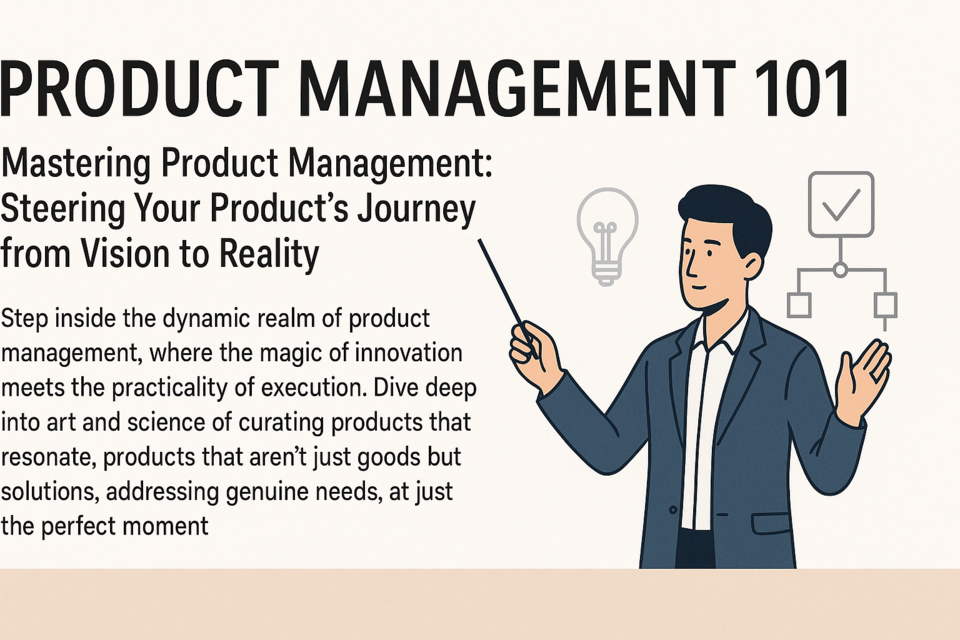The business and corporate world of today presents many opportunities for travel. In many job positions, travel on a routine or frequent basis may be the norm. Air travel etiquette is important for all of us, but even more so for those who travel on behalf of their company or organization. We will discuss the primary actions you should take to represent yourself and your company well in air travel, then additional ideas to help maintain your sanity on difficult trips, when things don't go as planned, and when there are airline difficulties or problem passengers.
The landscape for travel changes on a frequent basis -- the length of layovers, the length of delays, the number of cancellations, the volume of lost luggage, additional security screening, the reduction in the amount and size of luggage, and finally, the reduction in the size of your seat. The one thing that does not change is that you have to get from point A to point B on time and preferably with any necessary materials.
Have you ever flown from the east coast to the west, or vice versa, with a four-hour flight, only to have an hour delay because of weather in the airport waiting for your plane to arrive, followed by another 40 minutes on the tarmac waiting for takeoff approval, finding out you missed your connecting flight in Denver, and your luggage just went to Orlando? Most of us have some story we share with others about our "worst flight ever!" The best thing you can do is be as prepared as possible on both ends -- before your departure, and when you arrive. Preparing for possible problems before you leave places you in a mindset to better cope with the adversity when the not-so-good happens.
The average airline seat width ranges from 17 to 21 inches, depending on the airline. The longer you are in that type of setting, the more rapidly you and your fellow travelers become less tolerant and ruder. Add on the complications of hunger, flight anxiety, and cabin noise, and you can see the potential for multiple compounding factors.
Imagine if the return flight had delays, you were gone for three days full of negotiations and meetings, only to not land the account, and you know when you return your boss is not happy. To top it off, the passenger on your right is snoring and has his head resting against your shoulder, the passenger in front of you has her seat back against your knees, and the infant in the seat just to your right has cried for the last 20 minutes. Could things get worse, you ask? To answer your question yes, the passenger seated two seats to your right drops his Coke as the stewardess passes it to him, and a portion of it spills on your leg. Okay, we won't ask again could things get worse, but you know they could.
Remember, you are a representative of your company. On an airplane, you are in a very small, confined location. Passengers may notice your company logo on a shirt, lapel pin, notebook, or laptop document. That may work out to your benefit, but could also be harmful if your conduct is less than professional. They may make contact with your company and provide details of the flight and your actions. Depending on the severity, your arrival back to the office could be less than pleasant. Poor travel etiquette actually produces additional stress and makes your travel much less enjoyable.
Many travelers are rude today because they feel is their right to be rude or selfish, simply because they have purchased the plane ticket. There are many expectations that go along with airline, travel including efficient boarding, available amenities, few distractions and efficient deplaning.
General rules for pre-flight, during flight and deplaning
Let's begin with ways to minimize stress and make your travel better, with your own preparation.
Checkpoints
As you enter the airport, be prepared for security checkpoints. In order to increase your efficiency, wear shoes that are easily slipped on and off. Place content, such as phones and pocket contents, in your carry-on before you get in the front of the line. Move your items quickly from the conveyor, so that others may collect their items.
Boarding
-
Have your boarding pas ready when you reach the front of the line.
-
Only board in your group or row.
-
Move out of the aisle quickly, once your luggage is stowed.
-
Don't bring luggage that is broken or difficult to maneuver.
In-flight
-
Be cautious not to lean on other passengers, especially if you fall asleep.
-
Each passenger should have one arm rest; the aisle seat has one arm rest, the window seat has one armrest, and technically, the seat in the middle has two arm rests.
-
Be careful reclining your seat. If in doubt, reach a reasonable compromise with the person behind you. Do not simply push your seat back fully, just so you are comfortable.
Luggage
-
Make sure you meet your airline's size restrictions for carry-on luggage, and know what the restrictions are on baggage that you must check.
-
Use care carrying your luggage down the aisle, so as not to hit others.
-
To be courteous, and to speed things along, help others place their luggage in the overhead if they need assistance. A little help goes a long way in air travel.
-
Mail stuff ahead; many business travelers mail documents, clothing, and other articles in advance of their trip to pick up on the other end, or mail items home that they have acquired on the trip. This also prevents you from being over size limits for weight for carry-on luggage
Conversation
-
Have a plan to end conversations when you need to. For example, please excuse me, I do not intend to be rude, I have been working hard this week and need to rest briefly.
-
Be polite, some people are very talkative, and others fly infrequently, which often leads to talking to reduce some of the nervousness.
Space
-
Be courteous for those traveling with you. We mentioned that seats are decreasing in size and the duration of flights and cancellations add to discomfort.
-
Share arm rests and reading materials.
-
Be courteous and pass items when necessary.
-
Assist others with lifting items.
-
Be aware of how far you have your seat reclined, so that it does not rest on the knees of the passenger behind you.
Snacks, computers, electronics, gum, and odors
-
Be careful with snacks and drinks to prevent spilling on fellow passengers.
-
Computers and electronics will pass the time on airline flights. Use them appropriately. Maintain volumes at a reasonable level and ensure material on laptops is appropriate, and not confidential, from a business perspective.
-
If odors are prevalent, you may use the ventilation above your head space to provide additional air flow.
Noise
Any number of factors can add to the noise level in the aircraft cabin, including the aircraft itself, air ventilation, a fellow passenger's conversation, electronics, and possibly babies and small children. Some travelers who travel frequently bring headphones to deaden noise or to watch a favorite movie from their laptop. Do what makes you comfortable, masking the noise, or distracting you from focusing on it.
Cultures
Be considerate of people from other cultures. Airlines are used for domestic and international travel, and people from different cultures are common on airline flights. Be respectful of other cultures. They may not have the same rules or gestures in their country, and what you view as inappropriate may be acceptable in their culture. Take the opportunity to converse and actually learn something from their culture. Business professionals take every opportunity to learn, and there is no better place than an airline flight to learn about a foreign culture or spending time reading a business book or journal.
Let us now look at additional tips to help you present the best possible etiquette while air traveling.
-
Always remember, an airplane is a public place. Be courteous to families, children, and elderly passengers.
-
Never stand behind a flight attendant who is working from a service cart. This will make them feel uncomfortable and there is nowhere for them to go.
-
Assist those who may have trouble loading bags into the overhead compartment, or help remove them from the overhead compartment. Courtesy goes a long way.
-
Be careful when opening the overhead bin after flights, as items may shift and fall out onto other passengers.
-
Be courteous, by maintaining a clean and orderly area, including your seat, tray table, and snack items.
-
Limit stopping and chatting in the aisle as it impedes flow of attendants and others wishing to move about the cabin.
-
Be polite and do not remove your shoes during flight, unless you have slipper socks.
-
Be considerate about discussions with the people beside you; they may not want to talk.
-
Be considerate of the leg room and space of the passengers ahead of and behind you.
-
Always sit in your assigned seat, unless requested to do otherwise by the flight attendant.
-
If someone requests that you exchange seats, such as a window seat for an aisle seat, and you have no preference you may do so.
-
Be careful not to check any presentation materials, in case your carry-on luggage is lost.
-
Be sure to board the airplane quickly and avoid conversations in the entryway.
-
Carry your over-the-shoulder luggage in front of you to help you make your way down the aisle.
-
Avoid hitting others with your baggage as you navigate the aisle.
-
Keep reading materials available before boarding the plane, instead of trying to remove them from the overhead compartment once you have boarded.
-
Check any excess baggage or over-sized bags to prevent delays.
-
Never be confrontational, as this will have serious consequences.
-
Always listen to the flight attendant and be aware of exits and any unique special instructions.
-
Wait your turn when exiting the airplane. Rushing through or pushing past the exit line only slows the efficiency of others exiting the plane.
-
If you are traveling with a colleague, do not wait for them at the head of the aircraft and slow other passengers; meet them at your arrival gate.
What to do when you encounter a difficult situation
Try to handle the matter yourself with professionalism and poise. You may offer the fellow passenger some options, or offer to assist them. If difficulty still exists, contact a flight attendant; there may be some option, such as switching seats, or moving to an empty seat, depending on the availability. Poor behavior is rarely tolerated on airline flights these days by fellow passengers or the airlines. If you are having a significant problem, indicate so to the flight attendant and seek help.
Summary, reminders, and takeaways
Air travel can be difficult for everyone. As a business professional, your job may require frequent travel. Delays, canceled flights, and limited space -- coupled with long days and a multitude of personalities -- can lead to situations that are not optimal. Remember to be courteous, and that your purpose for the travel is business related. You want to represent yourself and your company in the best manner possible.
Consider, too, the possibility that when you find others annoying or a nuisance, they may find you equally annoying. Always use good manners during the flight. Remember, others on the flight may be just as uncomfortable as you are, so be courteous.
This article will be beneficial to you in understanding the dynamics of office gossip etiquette. It will include tips for managing your professional image, and ways to be proactive in avoiding situations in which office gossip may portray you in a manner that contradicts your professionalism.
Managing office gossip properly will help ensure your career is progressing in the right direction, eliminates distrust, and shows your credibility within your company or organization. You will not become distracted by office gossip and can stay focused on the values of the organization.
Every business has its share of gossip and gossiping employees. How you react to and relate with them will be the predictor of your success within your company. Trust is an extremely important value with your leaders and peers and, in many ways, gossip destroys credibility and trust, because it undermines and devalues relationships.
Taking the word "gossip" at face value and simply using the definition at Merriam Webster, a gossip is "a person who habitually reveals personal or sensational facts about others."
Gossip in the office environment is generally unwanted and counterproductive. It destroys relationships and prevents collaborative conversation. Most often, gossip is derogatory and hurtful to others in the office environment. Gossip spreads hurtful information about others, typically of a sensitive or confidential nature.
Research on social interaction shows that people who gossip the most have very high levels of anxiety. This anxiety is often channeled back to co-workers. Gossipers in the work environment are typically not popular, and not well trusted.
These are some of the factors as to why people gossip:
-
They have an inferiority complex or don't feel comfortable about who they are.
-
Gossipers feel better about themselves when they judge others in a negative manner.
-
Some gossipers gossip because they are envious of others in the workplace, or of their career.
-
Some gossipers are simply bored. They do not understand constructive ways to converse with co-workers, so they generate gossip to raise people's interest.
-
Some people gossip because they don't feel like they belong. Often the gossip is a result of no inclusion. They don't feel like they're part of the group, and do not know how to present themselves in a manner that groups or individuals like.
-
Some people gossip simply because they are angry or unhappy in their lives. The gossip helps them feel some form of retribution in their lives, by making negative comments about others.
-
And still other people who gossip do so strictly for attention. They feel that spreading gossip is the foundation for productive communication and interaction, when actually the contrary is true.
Being a gossip is not a desired trait in the workplace. Let us begin by discussing the positive business etiquette aspects that will align your actions with traits that are desired in the workplace, and the opposite of gossip.
Having good character traits will flow into the tone of your communication and discussions. A solid foundation will make gossip contrary to your business communication composure. The key to not gossiping is to hardwire your communication style within your personality, so that gossip feels uncomfortable to you and contrary to the professional image you want to portray.
Good tips to develop anti-gossip traits:
-
You should always mirror your tone to your intentions. Don't say one thing, then do another. Do as you say, and say as you do.
-
When you communicate, speak in a manner that shows no conversation is more important than the one you are currently having. Show the individual you are listening, and their information is valuable to you.
-
Hardwire consistency into your conversations.
-
We all have some degree of interest in our co-workers and we strive to find commonalities with them. Having a common interest builds a bond. People most like those who are like them, and trust people they like. You'll notice this simply by observing office meetings or seating arrangements in a company cafeteria.
-
These next traits are closely linked and go hand in hand. Always demonstrate that you are competent about the subject matter. Never make wrong guesses or assumptions. If you don't know an answer, admit it, and let them know you will find out.
-
Speak clearly.
-
Listen closely.
-
Keep confidential material confidential.
-
Listen more closely to criticism and objections.
-
Learn to make conversational analysis. Conversational analysis is your process of determining what is being said, and responding with the caliber of answer you want associated with your reputation.
-
Always treat everyone like they are on the same level, no matter where they fall on the company echelon. Respect builds respect. People follow those for whom they have respect, especially in situations where there is no rank.
-
Always speak with sincerity and in a genuine tone.
-
Make eye contact and be aware of perceptions. The key to perceptions is to be aware of how your actions look to other people.
Having looked at some of the traits we should develop, let's look at some of the things we should avoid.
What to avoid
-
Avoid situations where you have the unilateral reputation of being a manipulative person.
-
Avoid having communication that is one directional -- meaning, you speak, but do not listen.
-
Avoid appearing not interested in your colleagues' or customers' conversation.
-
Avoid not having your intentions match your tone.
-
Avoid accusing people of blaming people.
-
Avoid trying to please everyone.
-
Avoid being overly dramatic in the work environment.
-
Don't use contradictory words or body language.
-
Don't be overly reactive in situations, and take time to think before you react.
-
Don't be defensive.
What to display
-
Be firm in your answers; don't flip-flop your answers, but be flexible.
-
Use positive language, and don't accentuate the negative.
-
Position each conversation in a positive light, and understand the speaker's point of view.
-
Share conversation equally among the office workers. Be approachable and converse with everyone. That way, no one feels left out.
-
Make sure everyone feels equally important, when you are speaking with them. Use good eye contact and visual cues during conversation.
Strategic ideas to prevent the gossip environment
-
Avoid people in the office who are constantly putting other people down, or talking in a negative fashion about other workers.
-
Trying to determine why others put people down. They may not know why they're doing it, and may not be aware they're doing it.
-
If you are insulted, wait before you react and choose carefully how you want to respond -- or if you want to respond at all.
-
Ignore people who constantly "bait" you with comments such as, "You must be having a bad day." Let them know the opposite about your position. Tell them, "No, actually I'm having a great day. How about you?" Just remember not to feed into it.
-
For the constant condescending and insulting person, let them know right away you do not buy into their tactics.
-
You can also use body language to respond to gossipy or insulting people. For example, if they make a comment you can always yawn and wave them away. Without even saying a word.
-
You always have the option to change the subject, in order to channel their efforts and negativity.
-
You can use reverse psychology, as well. When they make a comment, respond exactly the way they were hoping. That will take all of the fun out of the gossiper's intent. For example, if they say, "My, aren't we having a bad hair day," you can respond back with, "I spent 20 minutes fixing it this way."
-
Try to infuse some humor, if a gossiper makes a comment. Do not reply to the comment, reply with something else funny or whimsical.
-
Another approach is to pretend like you did not understand what the gossiper was saying. Pretend you just did not get it.
-
It is difficult for you to portray a professional image, if you are just as guilty of gossip. Gossip should never be a part of your professional image. There is a time and a place for making a comeback, depending on your desired results. You can make your choice a response that is humorous or serious.
Best tactics:
In many ways, gossipers are like bullies in the work environment. Unless actions are put in place to prevent the activities, they will continue. It is important to recognize gossip characteristics, and not become a part of them, in order to maintain professionalism and display proper office gossip etiquette. It may be worthy, as a collective group, to discuss with a gossip individual your desires not to engage in office gossip, because of the negative impact on your work organization. Sometimes it is difficult to manage the situation if there are multiple gossipers within your organization. We will provide you with some good tips, tools, and tactics here to set you and your co-workers on the right track.
-
Simply level with the gossiper and tell them how you feel. Tell them you do not like gossip and feel it distracts from a professional environment. Ask them if they are even aware they are gossiping.
-
A long-term approach for some gossipers is to write down their gossip or sarcastic remarks over time. Have your colleagues do the same and post the sarcastic notes or gossip topics on the desk of or the cubicle of the gossiper after they have been out for a day. This will help the individual realize that the gossip and negativity affect all in the workplace.
-
Let the gossiper know you understand what they have said, and understand it is a negative comment about you or a co-worker -- and you want to make sure that is what they meant.
-
Have a line prepared to stop gossip, such as, "Frankly I'm surprised to hear you say that about (John). I personally don't pay attention to that kind of information." Or, you can say, "I will mention that to (Mary). I'm sure she needs to know, so she can set the record straight."
-
You can refocus the gossiper's intended message. For example, if someone says, "You know John never really has been a very hard worker," you can reply with, "I never really noticed, but he is very artistic -- don't you agree?"
-
Be cautious to evade trapping questions, where you do not know the other person's intentions. Merely shrug your shoulders and reply back, "Why would I need to know that?" or "Why would you say that?"
-
Minimize your contact with the gossiper. Request work in another area and avoid teams that may require interaction.
Summary, reminders, and takeaways























